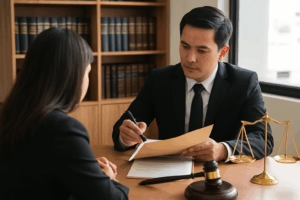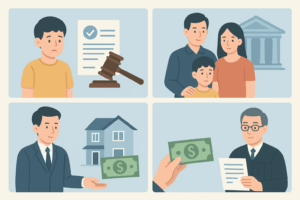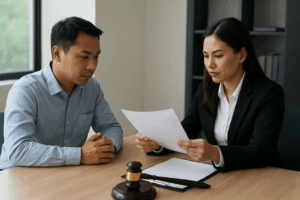Driving in Thailand, particularly in bustling cities like Bangkok, offers an exciting yet challenging experience. The vibrant streets are filled with diverse traffic, making it essential for drivers to understand and adhere to Thai traffic laws. However, navigating these laws can be complex, and violating them can result in significant fines and legal complications. In this comprehensive guide, we’ll explore common traffic violations in Thailand, the associated fines, and how partnering with a Bangkok law firm can help drivers mitigate legal risks and ensure compliance with the law.
Understanding Thai Traffic Laws:
Thai traffic laws are stringent and designed to maintain road safety and order. Whether you’re a local resident or a visitor to Bangkok, familiarizing yourself with these laws is crucial to avoid fines and legal entanglements. Here are some key regulations to keep in mind:
Speed Limits: Speeding is a prevalent offense in Thailand, particularly on highways and urban roads. Each road segment may have different speed limits, and exceeding them can lead to fines and penalties.
Traffic Signals and Signs: Running red lights or disobeying traffic signals poses significant risks to road safety. It’s imperative to follow traffic signals and signs diligently to avoid accidents and legal repercussions.
Parking Regulations: Illegal parking in Bangkok’s congested streets can result in fines and inconvenience to other road users. Drivers must adhere to designated parking areas and avoid parking in no-parking zones or obstructing traffic flow.
Seat Belt Laws: Wearing seat belts is mandatory for all occupants of a vehicle in Thailand, including passengers in the back seat. Failure to wear seat belts not only violates the law but also increases the risk of injury in case of accidents.
Common Traffic Violations and Penalties:
Despite the strict enforcement of traffic laws, violations are not uncommon on Bangkok’s roads. Understanding the consequences of these violations is essential for drivers to avoid fines and legal troubles. Some common traffic violations and penalties include:
Speeding: Exceeding the speed limit can result in fines ranging from moderate to substantial amounts, depending on the severity of the offense. Repeat offenders may face license suspension or other legal consequences.
Running Red Lights: Disregarding traffic signals at intersections can lead to accidents and legal liabilities. Offenders risk fines, demerit points on their driving records, and potential legal action.
Illegal Parking: Parking in prohibited areas or obstructing traffic flow can attract fines and towing fees. Drivers must be mindful of parking regulations to avoid fines and inconvenience.
Driving Under the Influence (DUI): Driving while intoxicated is a serious offense in Thailand, punishable by hefty fines, imprisonment, and license suspension. Partnering with a Bangkok law firm can help DUI offenders navigate legal proceedings and mitigate penalties.
Using Mobile Phones While Driving: Distracted driving, such as using mobile phones behind the wheel, is against the law in Thailand. Offenders face fines and increased risk of accidents.
How Bangkok Law Firm Can Help:
Partnering with a reputable Bangkok law firm can provide drivers with expert legal assistance and guidance to navigate traffic laws effectively. Here’s how a law firm can assist:
Legal Consultation: A Bangkok law firm can offer personalized legal consultation to drivers, explaining their rights and obligations under Thai traffic laws.
Representation in Court: In the event of traffic violations or legal disputes, a skilled attorney from a Bangkok law firm can represent drivers in court proceedings and negotiations with authorities.
Fines and Penalty Mitigation: A law firm can explore options for mitigating fines and penalties associated with traffic violations, such as negotiating reduced fines or alternative sentencing options.
License Restoration: For drivers facing license suspension or revocation due to traffic offenses, a Bangkok law firm can assist in the process of license restoration and compliance with legal requirements.
Legal Compliance Guidance: A knowledgeable attorney can provide ongoing guidance to drivers on maintaining legal compliance with Thai traffic laws, reducing the risk of future violations and legal complications.
Conclusion:
Navigating Thai traffic laws, especially in a bustling city like Bangkok, requires diligence and adherence to regulations. By understanding common traffic violations, associated penalties, and the role of a Bangkok law firm in providing legal assistance, drivers can minimize fines and legal hassles. Remember, proactive legal guidance can help ensure a smooth and safe driving experience on the vibrant streets of Bangkok.
Contact : Siam Center Law Group by calling +66(0) 2 648 5041, +66(0) 2 648 5042





